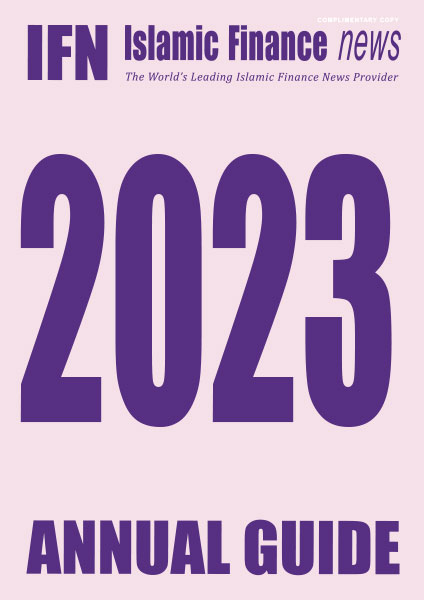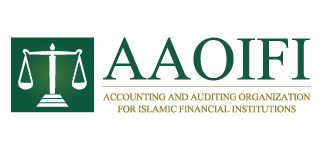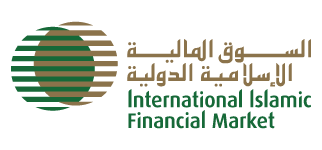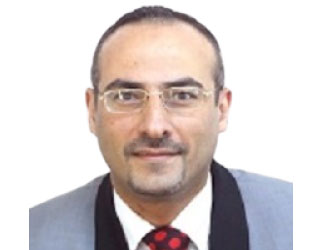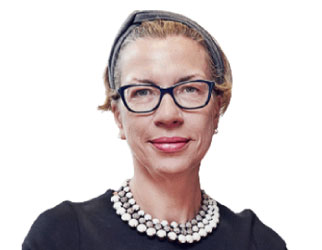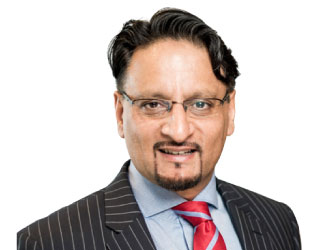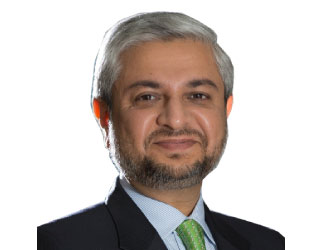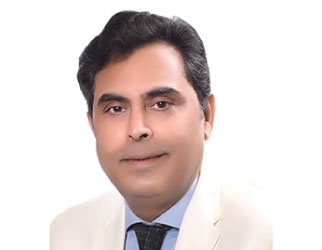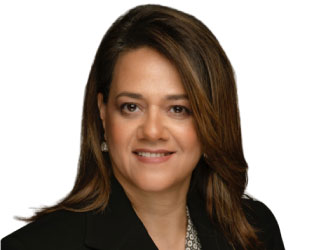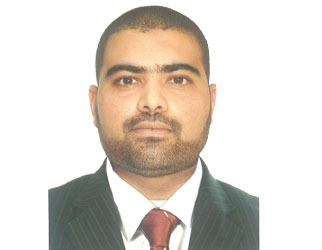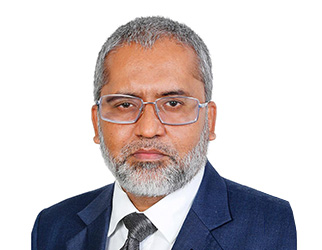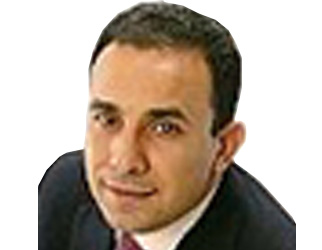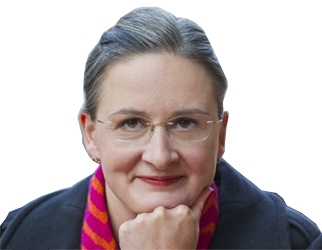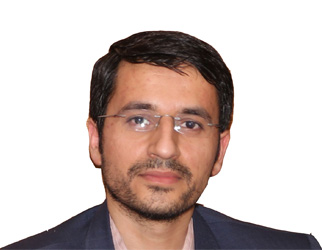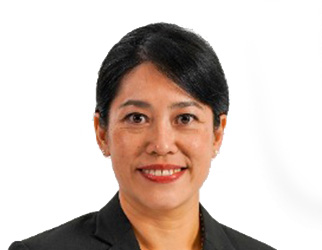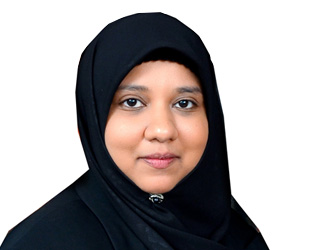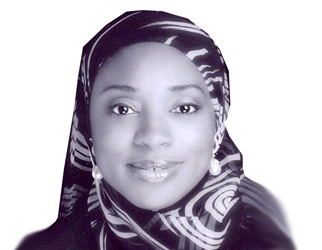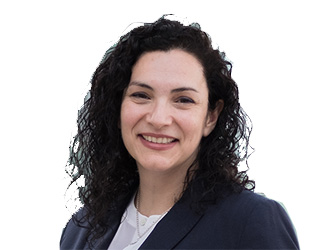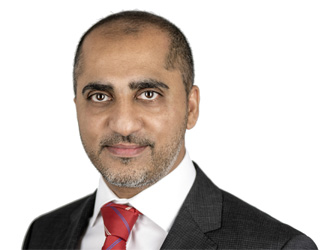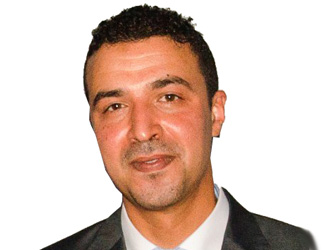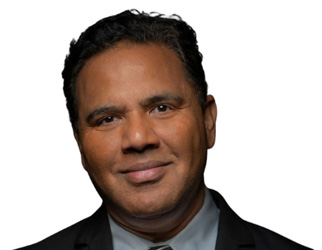
Just as world economies were showing small signs of recovery from COVID-19, 2022 dealt it with another blow. The Russian invasion of Ukraine sent global shockwaves paralyzing supply chains and trade, causing energy and food prices to soar. The world is dealing with a cost-of-living crisis and the threat of an impending recession. So, what can we expect in 2023? Is it really all doom and gloom? In the IFN Annual Guide 2023, market experts have identified growth hot spots and new opportunities amid such tumultuous times.

Report's Content
EDITOR`S NOTE: When it rains, it poursLast year, I prefaced the 2022 Annual Guide on a rather optimistic note, albeit with careful caution. The world was getting used to COVID-19 — it was getting better at adapting to a new normal, thanks to vaccines — and there was a collective frustration over debilitating restrictions which spanned two years. Just as we thought 2022 would offer a respite from the harsh hand COVID-19 has dealt since 2020, Russia invaded Ukraine, and that triggered another crushing domino effect.
Read MoreFOREWORD: The year to rebuild The Islamic Corporation for the Development of the Private Sector (ICD) is the multilateral strategic partner of IFN and REDmoney Group, the leading Islamic finance news provider and producer of market-leading conferences. The IFN 2023 Annual Guide highlights the numerous opportunities and initiatives emerging from the past year along with an appealing theme of investing into infrastructure to rebuild more...
Read MoreUpdates on AAOIFI’s achievements in 2022 and plans for 2023 As the world recovers from the after-effects of COVID-19, the growth of Islamic banking and finance continues in different parts of the world. It was certainly a productive year for AAOIFI as a number of standards were finalized while a number of other initiatives progressed well. The capacity-building...
Update on IIFM activities in 2022 - 2023 During 2022, the International Islamic Financial Market (IIFM) focused on carrying out extensive industry consultations to assess and plan out its standardization initiatives in line with industry developments and requirements in a robust manner with strict adherence to Shariah rules...
INTERVIEW: Catalyst for shared prosperity: Krish Narayanaswami on Islamic finance digital transformation The ongoing digital transformation is shaping the Islamic financial services industry and the impact on the faith-based financial model has been multifaceted. This has raised a host of existential questions. IFN speaks to Krish Narayanaswami, the managing director of banking, financial services, and insurance at Azentio Software...
MOODY’S INVESTORS SERVICE: Sukuk issuance to remain under pressure Moody’s Investors Service expects global Sukuk issuance to slide further in 2022 after a large decline in 2021, which followed several years of consecutive growth. The decline will mostly reflect lower sovereign issuance as major Sukuk-issuing sovereigns’ improved fiscal positions and higher interest rates pressure issuance activity. We expect total gross short- and long-term Sukuk issuance of US$160-170 billion in 2022...
ACCOUNTING: Market outlook of Islamic accounting As part of the comprehensive project for the revision and review of Financial Accounting Standards (FASs) initiated by AAOIFI in 2016, multiple standards were considered liable for a revisit. This included a number of key standards that had been in issue for almost two decades during which significant developments in...
AGRICULTURE FINANCE: Islamic financing in agriculture: A globally expanding opportunity In today’s world, the ever-growing globalization has contributed to the economic development of countries around the world, which unfortunately also leads to income inequality. More than half of the global income is concentrated in the hands of the top 10% of the world’s population. This opens up the scope of…
AVIATION FINANCING: Islamic financing for aviation: Maintaining a holding pattern The global aviation industry had been recovering from the lows of 2020 and 2021 with a surge of pent-up consumer demand for travel with most countries now ‘living’ with the COVID-19 coronavirus, albeit with some (notably China) remaining committed to its eradication. This recovery has started to come up against…
CROSS-BORDER FINANCING: Islamic cross-border financing: Growth amid uncertainties The global economy remains deeply depressed going into 2023 and is suffering another blow from the ongoing Russia–Ukraine war, exploding inflation and interest rate hikes while recovering from the setback caused by the COVID-19 pandemic. While the extent of the impact of this confluence of factors on the global…
COMMODITIES: Blue skies with merciful rain ahead Financial inclusion and digitalization have been key features of the Islamic finance sector in 2022 and could continue into 2023, underpinned by strong asset prices. Conflict in Europe, geopolitical rivalry and soaring inflation have taken their toll on global economic growth in 2022, but multiple underlying factors have…
CROWDFUNDING: The potential of Islamic crowdfunding is much higher than that of the conventional system The COVID-19 pandemic harmed all areas of life. What is worse is that the unnecessary restrictions taken during the pandemic destroyed macro economies. This pandemic, defined as the ‘Black Swan’ in conventional...
CYBERSECURITY: Exploring opportunities of quantum computing for Islamic finance As quantum computing becomes a reality, opportunities for Islamic finance are emerging. At present, two uses seem very real for the changing banking sector: risk anticipation and financial product valuation. This article sheds light on the opportunities that quantum computing offers in solving these problems and...
DEBT CAPITAL MARKETS: Buoyant 2023 Sukuk outlook despite slow activity in 2022 We have seen a substantial reduction in capital market activity in 2022 — particularly with regard to Sukuk issuance— despite 2021 forecasts. This has been underpinned by several factors, including the Ukraine–Russia conflict, high oil prices and the rebound from COVID-19 economic implications. The increased…
EDUCATION: Development of Islamic finance education: Challenges and opportunities To increase the number of finance and thus qualified professionals in the field, education providers have attempted to introduce Islamic finance programs and courses, particularly over the last two decades. According to a recent report, there are currently 1,008 institutions worldwide that offer degrees and courses in…
ENERGY: Shariah and ESG finance slow and steady or just too slow? The focus in 2021 on sustainable finance within the Islamic finance framework, in particular within the energy sector, continued into 2022. 2023 is expected to be another year of increased activity in this space; however the speed of growth in the sector is considered still too slow by many when…
EQUITY CAPITAL MARKETS: Global equity capital markets: Resetting expectations The financial year of 2022 was an extremely challenging year for capital markets. Geopolitics took center stage in the global capital markets in the outgoing year and not only rattled the global economy and capital markets but also disturbed international trade. This has implications for short-, medium- and long-term economic…
EXCHANGE-TRADED FUNDS: Global trends of ETFs in Islamic markets All Islamic financial products are compatible with Shariah Islamic principles. These products include equity, Sukuk, investment funds and so on. It should be noted that the lion’s share of this market belongs to Sukuk assets irrespective of banking (according to the IMF). Islamic finance assets have grown from US$1.95 trillion…
ESG: ESG and Islamic finance: Growth, enablement and nuance The convergence between the broader ESG community and Islamic finance is a fundamental trend with strong momentum. The trend stems from the in-built ESG components of Islamic finance (for example, the exclusion of socially harmful sectors) and from the ongoing development of the broader ESG sector…
FAMILY OFFICE: What the future may hold for family office management With nearly two billion Muslims worldwide, it should come as no surprise that the Islamic economy is a huge market that includes different types of sectors such as logistics, finance and food which the conventional market cannot afford to ignore. The family office’s objectives can be summarized as follows: as…
FINANCIAL INSTITUTIONS & CORPORATE SUKUK: Islamic finance and Sukuk industry: Reality and aspiration According to recent studies, the spread of Islamic banking and finance is accelerating in the international financial markets as a re-sult of the industry’s development efforts and global competition with…
HALAL INDUSTRY: Escalating Halal industry growth to accelerate global economic recovery Muslims’ spending increased 8.9% year-on-year (y-o-y) from 2020 to 2021 and is forecasted to grow by 9.1% in 2022, according to the State of the Global Islamic Economy Report (SGIER) 2022. At least 1.9 billion Muslims worldwide spent a total of US$2 trillion in 2021 for food, pharmaceuticals, cosmetics, fashion…
HUMAN CAPITAL: Rethinking Islamic financial sector talent for the future Over the last few years, the demand for a sustainable pipeline of talent in Islamic finance has accelerated with the adoption of digital technology in financial services. It is no longer about having only the knowledge of Shariah and Islamic products but also its application to the current wave of…
INSTITUTIONAL ASSET MANAGEMENT: Outlook on development of Islamic investments Interest in the Islamic asset management industry’s Shariah compliant financial instruments extends beyond the Muslim Ummah. Smart investors have grasped that the principles governing Islamic finance were attractive to other investor groups; the concepts of honesty, fairplay, trust and shared equity championed by Islam...
ISLAMIC FINTECH: Fintech is growing fast: Here’s what to expect in the next phase of its development Just one year ago, we reported on how the world was charting a course out of the COVID-19 pandemic with a keen desire to get ‘back to business as usual’. In 2022, we have seen the Islamic finance sector make…
ISLAMIC INDICES: The growth of Islamic index-based strategies Islamic indices provide market participants with a comprehensive set of Shariah compliant benchmarks for equities and Sukuk, covering a wide variety of investment themes and strategies. These have been created to support the investment needs of the Islamic investment community and have gained considerable…
LEASING: Fundamental economics: Replacing debt with real assets When speaking about Islamic finance, four terms stand out among others: (1) Musharakah (partnership) is the enterprising spirit. It is about discovery, equity, risk and reward; (2) Murabahah (value-added resale) is the supply chain, moving goods to and from economic centers; (3) Mudarabah (commission) is at the heart of all…
LIQUIDITY MANAGEMENT: Islamic liquidity management: Recent developments in the Islamic interbank market Given the historical weighting of Islamic finance to Islamic banks and their requirements, efficient liquidity management has been a necessary focus. The primary objective of the Islamic interbank market (IIM) is…
MERGERS & ACQUISITIONS: M&A transactions among Islamic banks projected to continue growth The consolidation wave for the Islamic banking sector has started due to the effects of the COVID-19 pandemic on the Islamic finance markets. The pandemic’s significant adverse effects on the sector and the excessive number of small banks in a number of countries, especially within the GCC region, prompted further…
MICROFINANCE: Getting down to business – micro-investing in recovery and climate change This year was an almost perfect storm — a war with a direct impact on energy prices and the grain markets, climate change wreaking havoc in Pakistan and the world still recovering from the COVID-19 pandemic. Micro and small enterprises are both bearing the brunt and hold the key to recovery…
PRIVATE BANKING: Islamic private banking: Malaysian economy a rising dark horse Currently, the Islamic finance market is subject to global economic dynamics of high inflation, rising interest rates and potential recession. Nevertheless, the presence and impacts of these dynamics differ from one economy to another. As such, Market Data Forecast research predicts the Islamic finance market…
PRIVATE EQUITY: Islamic private equity is on the rise — here’s why investors are buzzing about it Recent reports suggest a gloomy outlook for the UK economy as business and consumer confidence wavers with a recent change in government, rising costs of living and record-breaking inflation. However, the UK continues to attract interest from investors, particularly from dollar-denominated regions including the GCC...
PROJECT & INFRASTRUCTURE FINANCE: Project finance 2022: Renewables, utilities and ESG lead the way There has been significant growth in the market for Shariah compliant project financing, especially in the MENA region, over recent years. It is clear that the Islamic finance industry is increasingly shifting focus to...
RATINGS: A review of credit ratings in Islamic finance The global economy rebounded by about 5.8% in the current financial year of 2021 (CY21), recovering about 2.3% above pre-COVID-19 levels. However, since then, the rapid expansion in demand, coupled with the recent recession, has hit supply chains and revealed major vulnerabilities. As the supply chains struggled to keep up..
REAL ESTATE: Increasing opportunities Shariah compliant real estate investment has long been an established product offering for Islamic investment managers. As global markets wobble and recessions loom, the allure of bricks and mortar is strengthened, with investors seeking safety, an income and the prospect of capital appreciation. Real estate suits…
REGULATORY ISSUES: Selected regulatory and market developments in Islamic capital markets The Islamic finance industry, much like the broader finance market, has spent much of the last two years weathering the global economic turmoil and market volatility caused by, among other things, the Russia–Ukraine conflict, high inflation and monetary tightening policies of the US Federal Reserve and other major central...
RETAIL BANKING: Retail Islamic banking: Great ride but can do so much more 2022 was the year of markets opening up after COVID-19 and aligning to some of the new norms of work. As restrictions eased, markets particularly in the GCC rebounded with increased economic activity with strong momentum especially in mortgage sales. In parallel, challenges in the form of inflation and rising…
RISK MANAGEMENT: Challenging risk management landscape for 2023 The Islamic banking industry was resilient during 2022 where several Islamic banks showed consistent growth in terms of profitability and enhanced liquidity. There was clear evidence in terms of progress toward sustainable Sukuk. The overall Islamic banking market continued to grow with positive impact from oil…
SHARIAH & CORPORATE GOVERNANCE: Shariah governance practices in the global Islamic finance industry Islamic finance is still growing at a double-digit pace, making new inroads in the MENA region and Africa. Countries adopting Islamic finance have embarked on developing legal and regulatory frameworks to…
SMES & ENTREPRENEURSHIP: Islamic SME financing in a triangle of crises Owners and managers of SMEs would like to forget 2022. SMEs were devastated first by COVID-19 and the slow recovery from the pandemic, then by an unexpected increase in prices — partly due to geopolitical crises in Europe — leading to higher interest costs on a global scale and, finally, by the…
SOCIAL FINANCE: Islamic social finance: Potential in the face of global uncertainty The struggle against poverty has taken a positive turn in the previous decade, with the proportion of the world’s population living in extreme poverty falling by half, as reported by the UN (n.d.). However, this progress was hampered by the impact of the COVID-19 pandemic, which forced over half a…
STANDARDS & STANDARDIZATION: Standards and standardization: A need for more capacity-building The Islamic finance industry continues to grow in different parts of the world both in terms of its size, as well as through regulatory and policy developments. More and more countries are introducing Islamic finance in…
STRUCTURED FINANCE: Global economic crises, debt crises and participatory capital The global economic landscape since the year 2008 has been going through crises or facing a challenging environment and is once again facing an unprecedented economic crisis that is said to be more damaging than the 1970s recession and the 2008 global financial crisis at the collective level. This report…
SUSTAINABLE FINANCE: The rising state of sustainable finance — challenges and opportunities There is little doubt in the minds of financial market participants that Islamic finance has a natural affinity with sustainability. The underlying ethos is quite similar: making an investment decision on the basis of more than just profit. In addition, the typical negative screening list of the sectors or activities…
SYNDICATED FINANCE: Islamic syndicated financings: MENAT market overview Islamic syndicated financings underwent a major uptick in volumes fueled by buoyant loan financing markets in the GCC, underpinned by strong deal flows across the Kingdom of Saudi Arabia, the UAE and Bahrain. Despite a slowdown across the global markets, MENAT [Middle East, North Africa and Turkey] syndicated loan markets...
TAKAFUL & RE-TAKAFUL (AFRICA): Digital Takaful transformation strategy in Africa 2022 is considered the year of Takaful growth development and the strategic framework of digital Takaful transformation. Digital Takaful transformation is the process of changing how Takaful business leverages technology, people and processes to improve business performance and embrace new business…
TAKAFUL & RE-TAKAFUL (ASIA): Mixed fortunes for the Takaful industry in Asia 2022 has so far been a year of mixed fortunes for the Takaful industry in the region. While it continued its growth path, several Takaful companies have sustained losses from big market events and a difficult economic situation. Review of 2022: The General Takaful industry in Malaysia grew 19.8% in…
TAKAFUL & RE-TAKAFUL (MIDDLE EAST): Rising demand supports further Takaful growth in an evolving Middle Eastern insurance market We expect the market for Takaful to keep expanding in the Middle East, supported by strong demand and the spread of compulsory insurance in the Muslim-majority region. Takeup of insurance in the region also remains…
TRADING & BROKERAGE: 2022: Robust and eventful year for Islamic nations’ economies Despite global economic and financial uncertainty over the course of 2022, underpinned by successive interest rate hikes by the US Federal Reserve and its global counterparts, the developments in terms of financial exchange and activity in the Islamic world can be regarded as positive...
TRADE FINANCE: Expectations from Islamic trade finance during challenging times and beyond The COVID-19 pandemic coupled with the Ukraine–Russia crisis led to the deterioration of the global food security situation over the last years into 2022 and beyond, impacting severely the trade finance industry. Indeed, many countries involved in trade are hit so much that the recovery of the global economy…
VENTURE CAPITAL: The lines are getting blurred It is generally well accepted that the principles on which venture capital is built are Islamic in nature — they are based on risk-sharing and the lack of a guaranteed financial result. The world of Islamic finance is no longer isolated enough to sustain independent development. The calamities of the global…
WEALTH MANAGEMENT: Shariah status as a true safe haven for investors could very well be the silver lining Much of the euphoric 15% rally seen in the summer months of 2022 was down to a large sell-off in the price of oil which feeds directly into petrol pump prices, which in turn feeds directly into lower inflation…
WOMEN IN ISLAMIC FINANCE: Forward-looking perspective for women in Islamic finance The conversation about achieving better representation of women among the highest leadership ranks has been an issue at the top of the agenda for businesses in recent times. There has been a heavy focus on the significance of diversity, with several studies illustrating that a more diverse workforce helps organizations…
AFGHANISTAN: A glimpse of hope amid challenging times More than a year after the fall of the Afghan government, the humanitarian and economic situation in the country remains difficult, and the new regime faces a wide array of internal and external challenges. In July 2022, the World Bank ranked Afghanistan as one of the seven countries…
AFRICA — the sleeping giant The African economy witnessed a contraction of 1.6% during the COVID-19 pandemic, albeit followed by an increase of 6.9% in GDP in 2021. As Africa gradually tries to recover from the global pandemic, its average growth rate is projected to decelerate to 4.1% in 2022–23. Several key factors influence this decline; among
AUSTRALIA: New dawn for Australian Islamic finance and investment For Australian Islamic finance and investment, 2022 was a watershed year notwithstanding the challenging economic environment. The annual inflation rate in Australia was trending to 7.3% over the year to September 2022 (ABS September 2022). This level of inflation was last seen in 1990. Primary causes of high inflation were…
BANGLADESH: Islamic finance is the Bangladeshi economy’s new engine Bangladesh has a population that is overwhelmingly Muslim (91%), creating a strong and expanding demand for Islamic banking and finance, which is promoting the nation’s economic growth. Bangladesh ranked 14th out of 135 nations around the globe on the Refinitiv Islamic Finance Development Indicator 2021…
BOSNIA & HERZEGOVINA: Accelerated digital transformation Bosnia & Herzegovina (B&H)’s Islamic finance industry has only one bank and one microcredit organization. For many years, Bosna Bank International (BBI) has been a role model for the expansion of Islamic banking in a conventional environment, although the bank itself cannot properly apply most Islamic...
BRAZIL: Slow but assertive steps The year 2022 was a very busy one for Brazil — we not only had the presidential elections but also had to choose the governors and Congress representatives for both the Lower House and the Upper House and the campaigns are usually run throughout the year and consume a lot...
Brunei Darussalam emerging from market turbulence Renowned for its strong Islamic philosophy, Brunei Darussalam envisions itself to become an international Islamic financial hub. Islamic finance is one of the key focus areas in Brunei Darussalam Central Bank (BDCB)’s strategic development agenda as set out in the Brunei Darussalam Financial Sector Blueprint…
CANADA: Glowing embers of progress and support surging in favor of Islamic finance Canada has seen some considerable growth in the Islamic finance sphere, which is always pleasing to see. One thing has become clear: from the 2021 Canadian census that has been released throughout 2022, the Muslim population has grown exponentially from the 2001 census and is the second-largest…
EGYPT: Hope for Shariah compliant foreign direct investments during economic uncertainty The Egyptian Islamic finance market witnessed slight, yet steady growth over the past year. The Egyptian Islamic Finance Association noted that the Shariah compliant banking industry had expanded 17.4% since 2020. The rate of corporate Sukuk issuances has stabilized at approximately two to three issuances per year.
FRANCE: A simple market looking for practical solutions rather than sophisticated products 2022 was a rather calm year, yet with ground progress from the client’s perspective. Three new solutions were launched for French consumers, a record number from the previous year especially following the end of the COVID-19 crisis. The presidential election brought its lot of surprising
The successes and prospects of the Islamic financial system in The Gambia The Gambia is one of the smallest countries in mainland Africa covering a land area of 11,000 square kilometers. Out of its 2.4 million population, 95.3% are Muslims. The Gambia is among the first countries in the West African subregion to license an Islamic bank. The Islamic financial system is…
GERMANY: New technologies the way forward for the Islamic finance market Although there have already been some attempts to introduce Islamic finance products in Germany in the 1990s, Islamic banking products were considered a non-starter by most commercial bankers — until the financial crises in 2008. But despite the ensuing search for an alternative to conventional banking which has helped the Islamic...
Islamic finance development can support Ghana’s economic recovery Ghana’s public debt has reached 83% of GDP, with a debt service payment of US$3.01 billion as of 2022 (EIU, 2022). The debt figures raise the debt sustainability issue for Ghana and its impact on the Ghanaian cedi. Ghana has begun discussions with the IMF to secure financial…
Islamic finance in India: Taking root through greater community participation There are mainly three financial authorities in India which regulate the banking and financial sector. They are the Reserve Bank of India (RBI) for banking, the Securities Exchange Board of India for capital markets and the Insurance Regulatory and Development Authority of India for insurance. Over the years…
The challenges of Indonesian Islamic finance There were two situations that were expected to occur during 2022 when the COVID-19 pandemic is over and the economy begins to recover. In fact, the pandemic still exists and is still infecting many people; however, almost all countries have decided to revoke their pandemic status, in the hope that business…
Iran’s Shariah compliant financial system: Toward realization Iran’s financial system, as a wholly Shariah compliant financial market from the legal point of view, is composed of the banking sector and the capital market as the two pillars of its financing system. Apart from this, Shariah compliant insurance services protect market players against risks and damages which might…
Iraq: A land of lost opportunities The Islamic financial sector has vast potential to perform efficiently in Iraq due to the unbelievable wealth the country retains, but unfortunately all the resources are unexploited and/or mismanaged. Iraq is a country with high financial potential, being rich in oil, gas and natural resources including phosphate, sulphur, water…
IRELAND: Islamic finance growth slows down in 2022, but the future is still bright In 2011, the Irish government set out to establish Ireland as a center of excellence for Islamic finance. Changes to tax laws and regulations were implemented to ensure they were Shariah compliant and double taxation treaties were signed with Gulf states. Since then, Shariah compliant financial certificates (Sukuk) have been…
Green light for Islamic finance in the Ivory Coast 2022 has been very rich in the Ivory Coast and can even be considered as a fairly decisive turning point in the evolution of Islamic finance, a year marked by several training and awareness initiatives, strengthening the regulatory framework and also international cooperation with encouraging prospects for the year...
Japan continues to prioritize macroeconomic stability and global growth In 2022, the yen hit the lowest level in 30 years (1 US$ = JPY145–150), helping the BoJ surpass its inflation target of 2%. The weakened yen showed its immediate impact as record trade deficits in the first half of fiscal 2022 reached JPY11.01 trillion (US$78.5 billion), due to…
Islamic banks aid Jordanian economy to overcome ordeal of pandemic Jordan’s geographical and political location between the Arab and Islamic countries provides it the opportunity to outperform many countries in the Middle Eastern region in several fields including, for example, governance. International economic and banking institutions are currently looking at Islamic economic concepts, and are seeking to know the extent…
Islamic finance in Kazakhstan and AIFC: Potential for growth Islamic finance is a fast-growing and promising segment in the world which is known for its sustainability in the market. The volume of this segment in the world is US$3.6 trillion, and it is growing annually by 15%. Kazakhstan was one of the first CIS [Commonwealth of Independent States] countries…
Islamic finance: A new frontier for project finance in Kenya? Despite 2022 having been a year of highly contested presidential elections, Kenya retained its position as a leading economic and financial hub in East Africa. In the wake of a disputed presidential win, the Supreme Court of Kenya moved swiftly to determine the presidential petition, thus cushioning the country against…
Kuwait: Resilient performance out of the pandemic shadows The GCC’s banking systems have proven resilient to past regional shocks, as affirmed by global rating agencies. The Gulf War of 1990 was one of the rare instances where private sector domestic deposits showed instability.
Kyrgyzstan set to be regional center for Islamic economics and finance in Central Asia Islamic banking has only 1.5% of the total market share of the overall banking sector in Kyrgyzstan. The National Bank of the Kyrgyz Republic (NBKR) is the main state regulator that is responsible for the strategic actions regarding the introduction and development of the Islamic banking industry…
The Lebanese banking sector: A total collapse or hidden restructuring? Lebanon, a country with a modest area of 10,452 square kilometers, had the most prestigious conventional banking services and innovative products for many decades and a very promising Islamic banking sector since 1996. Lebanese banks were acting as the Middle East’s banking center with high liquidity and reputed security. During this…
Digitalization and Islamic finance: A key thrust in Malaysia’s agenda to accelerate recovery of and path to achieving sustainable and inclusive economy Malaysia has formulated various policies to drive its economic development and transformation toward becoming a high-income and sustainable nation. The Shared Prosperity Vision 2030, which was introduced in 2019, has underscored Islamic finance and an Islamic digital economy as among the…
MALDIVES: Islamic finance transition from pandemic to endemic 2022 was seen as a year where the economy of the Maldives is recovering from the COVID-19 pandemic effects. For Islamic finance, not much progress was seen. However, there were a few significant developments that happened which have brought some remarkable positive changes to the Islamic finance industry in the…
A glimpse of the Islamic banking and finance industry in Mauritania In reference to Mauritania, the banking sector represents roughly 88% of the overall financial system. Banking sector assets are estimated to be US$2 billion (Amendola et al., 2016). There are only 18 banks, four of which are Islamic. The banks’ headquarters are in the capital city, Nouakchott. Most conventional banks…
2022 the year of Sukuk revolution and the beginning of insurance in Morocco Since its formal launch, the Moroccan Islamic banks have gone into business without insurance to cover their clients and their financing against risks, in particular in the event of death. The customers of Islamic banks had signed up to obligations to conclude Takaful insurance contracts…
Fintech innovation can enable financial inclusion for Muslims in New Zealand With a diverse but tiny total population of fewer than five million people, New Zealand has a Muslim population of just over 1% of the total population (around 62,000 people) (Massey University NZ, Ethnic Profile, 2018 Census data).
NIGERIA: Onto higher grounds... The year 2022 had many positives for the Nigerian Islamic finance industry, as players and regulators strived to ensure that the industry continued its growth trajectory. The achievements are commendable in light of the difficult macroeconomic terrain that characterized most of the year. If this level of vigor continues in 2023 which is also…
Offshore centers remain in favor notwithstanding unstable economic conditions The rating agencies have reported a decline in Islamic capital market activity from the core Sukuk-issuing nations, due in part to higher oil prices and interest rates. Notwithstanding unstable economic conditions, offshore centers, such as the Cayman Islands, Ireland, Jersey and Luxembourg, continue to be regularly used for Sukuk issuances...
Omani Islamic finance industry in 2023: From strong to stronger still Changes to the Omani regulatory landscape, possible Islamic bank consolidations, new Islamic REITs and changes to Takaful are expected to herald in a new age of Islamic finance in the country. The pace at which Islamic finance has grown in Oman has been widely celebrated with Islamic banks and windows accounting for US$14.7 billion...
Islamic finance of Pakistan: On a growing path Globally, Islamic finance has been performing well despite the shock from the COVID-19 pandemic and unstable and depressed economic scenarios. Driven by the pandemic, digitalization and fintech collaboration are enabling the industry to innovate, connecting issuers and investors to have better access to existing and new markets more efficiently. Likewise, in Pakistan…
Revisiting Islamic finance in the Philippines Undoubtedly, the COVID-19 pandemic disrupted the development of Islamic finance in the Philippines in 2022, particularly in stalling the aimed-for expansion of market players in the Islamic banking sector. The anticipated entry of foreign Islamic banks into the country failed to materialize as business expansion outside one’s jurisdiction was generally…
Qatar delivers on its World Cup promise The Islamic finance industry in Qatar has played a pivotal role in the development of the infrastructure which was key for FIFA World Cup Qatar 2022. It is estimated that over US$250 billion was spent by Qatar in the 12 years from the award of the right to host the World Cup to the closing ceremony of the event.
New geopolitical situation promotes Islamic finance development in Russia Sanctions from western countries were the triggers pushing Russian governmental authorities and corporations to urgently search for alternatives of financial recourse and business partners. The stable and prosperous partners of Russia are traditionally countries in the Middle East and Southern Asia preferring Shariah compliant transactions.
Saudi Arabia to witness further growth in 2023 One of the most attractive markets for Islamic finance investors is the Kingdom of Saudi Arabia (the Kingdom), which is taking further significant legislative, social and economic steps to encourage regional and international investments. The Saudi Arabian regulatory and legislative system continued to witness substantial reforms in 2022 and reflect...
2022 the year of revival for the Islamic financial ecosystem in Senegal Most experts have shown in their research the timidity of the development of Islamic finance on the African continent and its small share of the total Islamic financial industry balance sheet — less than 2%. As for the West African Economic and Monetary Union (WAEMU), member countries have lagged because they have long…
Singapore’s Islamic finance: Growing demand and work in progress Singapore scored a major economic boost when, despite the gloomy global economic forecast, it hosted the first Formula One car race after three years of COVID-19 pandemic lockdowns. Even though the racing event was important for the economy, the most conspicuous development was that the world’s largest hedge fund, Bridgewater…
South Africa: A sound investment approach is essential in volatile times In 2022, global geopolitical and economic events cast a long shadow over developed and emerging markets, with standout events being Russia’s invasion of Ukraine in February and the US Federal Reserve Bank’s efforts to combat persistently high inflation through aggressive interest rate hikes.
SRI LANKA: Progressive alternate financial services during volatility The Democratic Socialist Republic of Sri Lanka is a South Asian island-nation located in the Indian Ocean, separated from Indian subcontinent by the Gulf of Mannar and Palk Strait, and sharing a maritime border with India and the Maldives. Its legislative capital is Sri Jayawardenapura-Kotte and the commercial capital is Colombo.
More optimism for Islamic finance in Tanzania Tanzania has seen remarkable strides in the development of Islamic finance over the past two years. Despite that fact that a lot still needs to be done, from a legal and regulatory framework to education and awareness, we must recognize and praise the milestones achieved so far. The years…
Islamic finance in Tunisia exploring new avenues, but still vulnerable to the macroeconomic crisis Tunisia is experiencing a lengthy and problematic process of negotiations over a third IMF bailout for a rescue package, in the context of mounting debt and diminishing foreign reserves in conjunction with inflationary pressures driven by a commodity price increase and local currency depreciation. Meanwhile, Tunisia’s president is imposing…
Hard work and dedication to welcome harvest time in Turkiye Even though Islamic banking has a relatively modest size compared with conventional banking, it is developing both nationally and internationally, revealing its potential and taking on a structure that operates in different fields worldwide.
UK: Stability or uncertainty? Can the UK maintain its position as a leader in Islamic finance in 2023? The UK has an impressive depth of knowledge in Islamic finance which is exported around the world. October saw a combined effort between the Bahrain Institute of Banking and Finance and Coventry University around Islamic fintechs for example, in addition to…
State of the US Islamic financing and housing markets The state of the US housing market in the fourth quarter of 2022 can be best described in two words: very challenging! While the current housing market is not in dire straits as it was during the financial crisis that unfolded in the 2008–09 period, echoes of concern…
Uzbekistan opens for Islamic finance Uzbekistan is a fast-growing country in Central Asia, with 34 million inhabitants, more than 90% of which profess Islam. Therefore, more and more people and businesses are concerned about finances and their origin. Various research shows that around 15–20% of the population…


